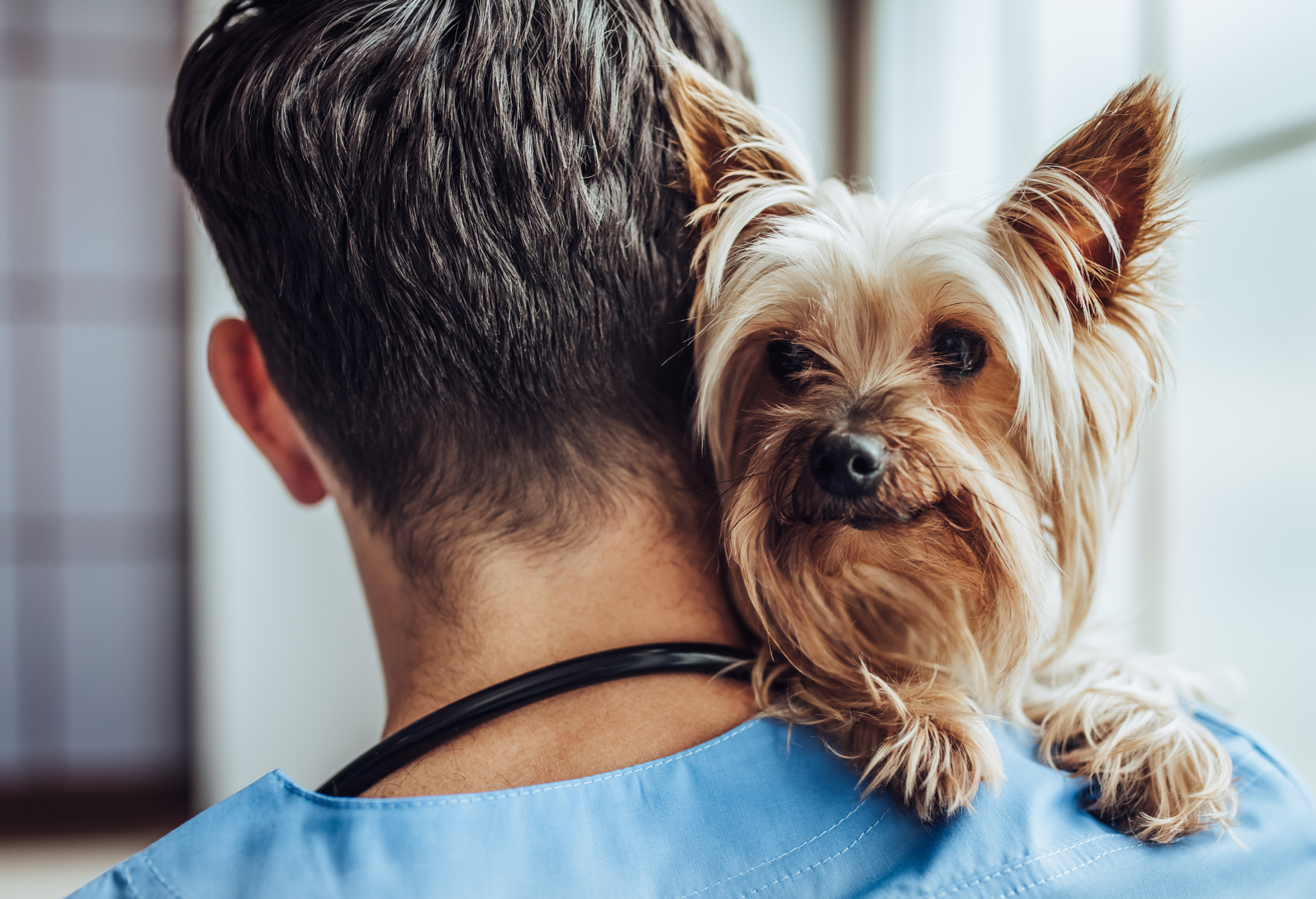Dog vaccinations are really important to protect your pup against various diseases, some of which can be fatal. Others cause serious illness and require expensive treatment.
Vaccinations have all but eliminated certain dog diseases like distemper. They also provide ‘herd immunity’ against those that remain a threat. This means having a vaccinated dog population prevents the diseases’ ability to spread in the environment via unvaccinated animals.
If everyone stopped vaccinating their dogs, then many of these diseases would reappear. So it’s vital to keep our dogs’ vaccines up to date.
What do we vaccinate against?
There are core dog injections that every dog needs, and others which are optional depending on your dog’s lifestyle and risk factors.
The core vaccinations for dogs in the UK are:
- Distemper
- Hepatitis
- Parvovirus
- Parainfluenza
- Leptospirosis
Optional vaccines include:
- Rabies
- Kennel Cough
- Lyme Disease
The core vaccinations protect against disease all UK dogs are exposed to. Some of these threats have changed over time. Distemper has been almost eliminated, but with movement of dogs in and out of the country it could reappear if we stop vaccinating against it.
On the other hand, new strains of Leptospirosis have been appearing in the UK in recent years. Most vets are now giving an L4 vaccine rather than the traditional L2, protecting against the four strains now found here instead of the two most common ones.
Optional vaccines depend on your dog’s risk level. If they travel outside the UK, they have to have a rabies vaccine as a requirement of their pet passport. If they go to boarding kennels, doggy daycare or even some grooming parlours, they may require vaccination against kennel cough too. This is highly contagious and spreads easily where many dogs mix. Lyme disease can also be a concern in high tick areas.
If in doubt, we recommend you discuss your dog’s risk levels with your local vet and decide together on what vaccinations are needed. They can also advise on travel vaccinations for dogs, as well as ways of protecting from other diseases they may encounter according to destination.
When and how often is best to vaccinate?
When puppies are about 8 weeks old they’ll have their first vaccination. Before then, they’re still relying on protection from their mothers’ antibodies provided in milk. They normally have a first and second puppy injection 2-3 weeks apart. The exact protocol depends on the specific vaccine your vet practice uses, so they’ll advise on the correct timing for your pup.
After the puppy course, your dog will need booster vaccinations. A booster vaccine for dogs is one that tops up their antibody level, ensuring they remain protected for life. Boosters used to be given each year for all diseases. Nowadays, annual (yearly) and triannual vaccinations (every third year) are given. This is due to ongoing vaccine improvements and more research showing that antibody levels to certain diseases stay higher for longer.
Leptospirosis is unique in that it’s a bacteria, not a virus, meaning a different type of vaccine is used; the vaccine doesn’t generate as strong an immune response. For this reason, Leptospirosis vaccination must be given every year to remain protective. The bacteria is also far more common in the environment than viral diseases so infection risk is higher.
Are there any side effects?
There can be mild side effects of vaccination in some dogs, such as fever, temporary loss of appetite or some local swelling at the injection site. Generally these minor symptoms resolve within 24 hours.
More serious side effects like allergic reactions to the vaccination are very rare but can occasionally occur. Your vet is well equipped to treat these if they ever arise.
Other side effects relate to the type of vaccine given. For example, the kennel cough vaccine is given as a squirt of liquid up the dog’s nose to stimulate local immunity exactly where the infection enters the body. It can sometimes cause mild signs of actual kennel cough like coughing and sneezing, but this means the vaccine’s working as it should.
Cost of vaccinations
Dog vaccinations cost different amounts depending on what’s covered and also vary from one practice to the next. Puppy vaccinations cost more than dog booster costs usually, because puppies have a primary course of two injections.
The annual booster costs less, and in some vet practices they will be included in your pet health scheme. These schemes offer discounted consultations, and money off preventive or wellness care including vaccines, flea and worming treatments. They also spread the cost of your dog’s vet care over the course of the year.


If I go to a cheaper get for vaccinations are they the same